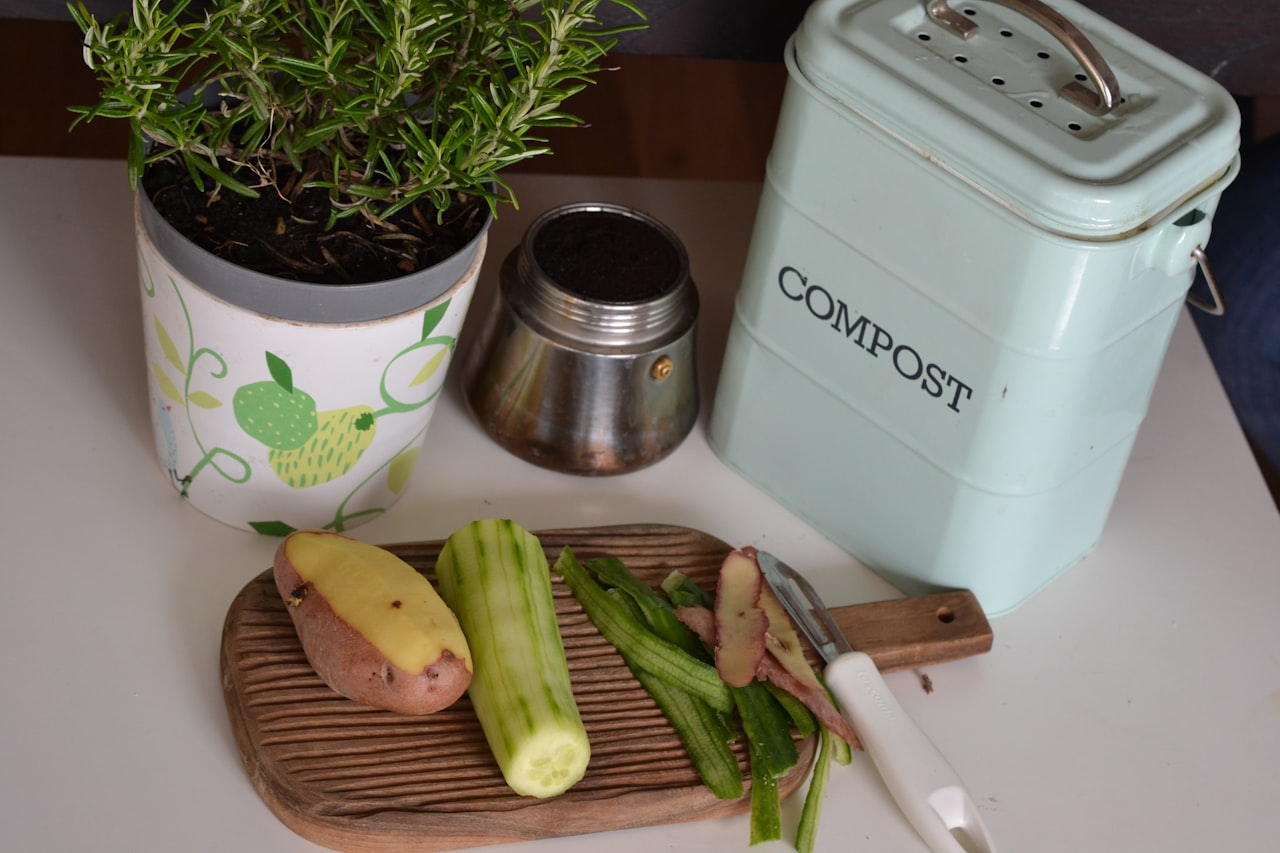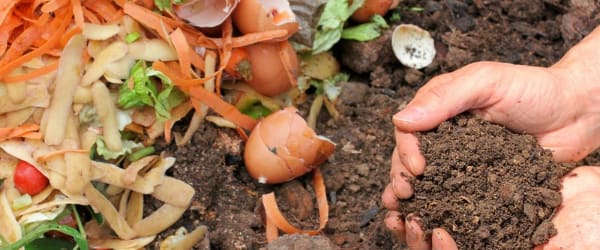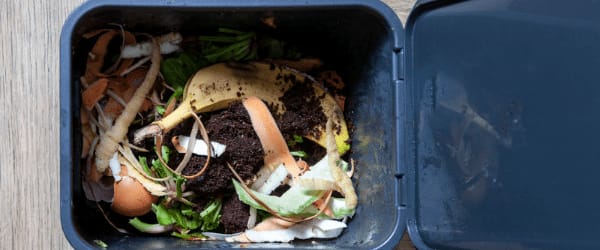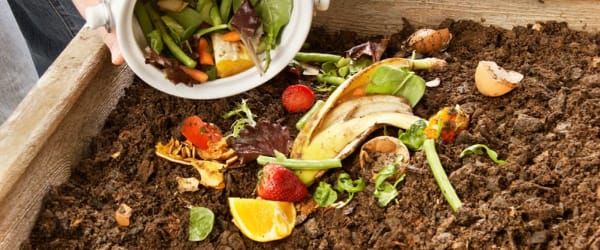What is composting?
Composting is the natural process of organic material decomposing and converting into a nutrient-rich soil amendment (which we call “compost.”)
When people say they’re composting at home, they’re referring to the practice of setting aside their food scraps and yard waste to add to their compost pile. Their goal is to reduce the amount of waste they put in landfills and yield their own supply of compost to enrich their garden soil.
What equipment do I need for home composting?
While some people choose to have an open compost pile, many cities require residents to do their composting in a closed bin like this one. Place your compost bin away from your house (but not so far that you won’t want to make a daily trip to dump your food scraps).
A pitchfork can be helpful for mixing the materials in your compost bin. You will also need a garden hose nearby because your compost pile requires frequent watering.
It is also recommended that you place a sheet of wire mesh under your bin to prevent mice from moving in. (But don’t worry, as long as you keep things like meat and dairy out of your compost bin, the local wildlife should stay away.)
Finally, you’ll need a small trash bin to keep in your kitchen to collect your scraps throughout the day.
What can I add to my compost bin?
You need to maintain the right balance of “greens” (nitrogen-rich material) and “browns” (carbon-rich material). The recommended ratio is 3 or 4 parts brown to 1 part green, but you could also aim for a 50/50 mix.
Greens can include food and vegetable scraps, grass clippings, coffee grounds, paper filters, paper tea bags (but no staples), and rinsed and crushed eggshells.
Browns can be dry leaves, plant stalks and twigs, shredded brown bags, shredded cardboard, and untreated wood chips.
Things you should NOT add to your compost bin:
- Meat, fish, and bones
- Cheese and dairy products
- Pet waste and cat litter
- Produce stickers
- Fats and oils
- Weeds with live seeds
- Cooked food
Certified compostable bags, cutlery, plates, etc. (these typically require high temperatures that your home compost bin will not maintain)
Your compost will be ready to use in about 3-5 months, and the final product will be about a third of the size of what you put into it. When it’s dark, loose, crumbly, and smells like fresh soil, it’s time to add it to your garden beds!
Learn even more about composting at EPA.gov/recycle/composting-home










